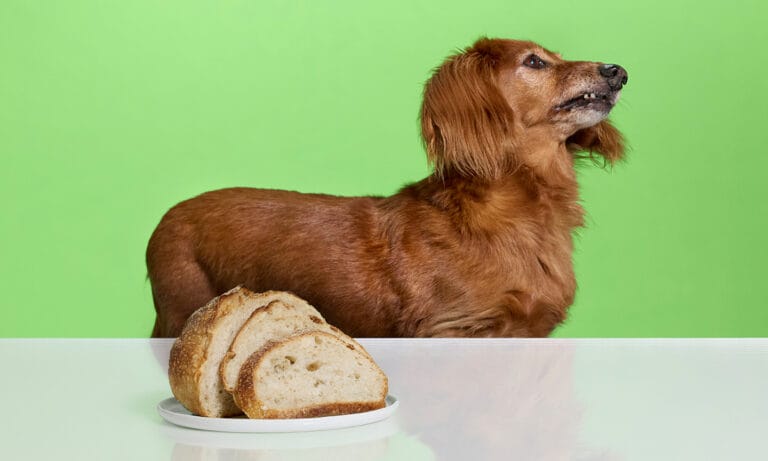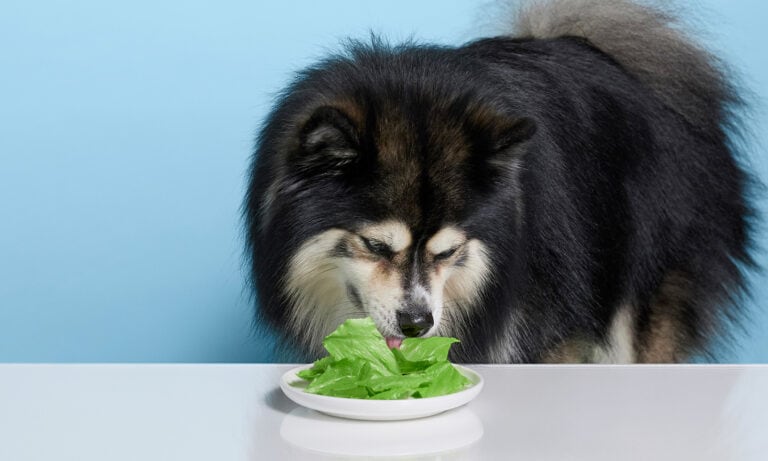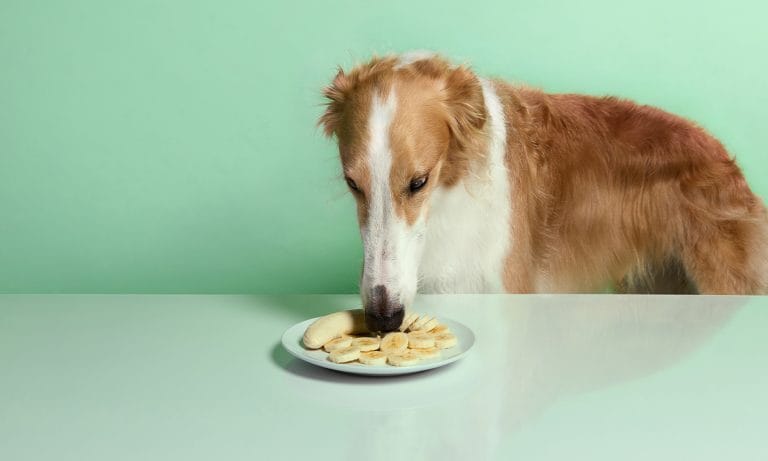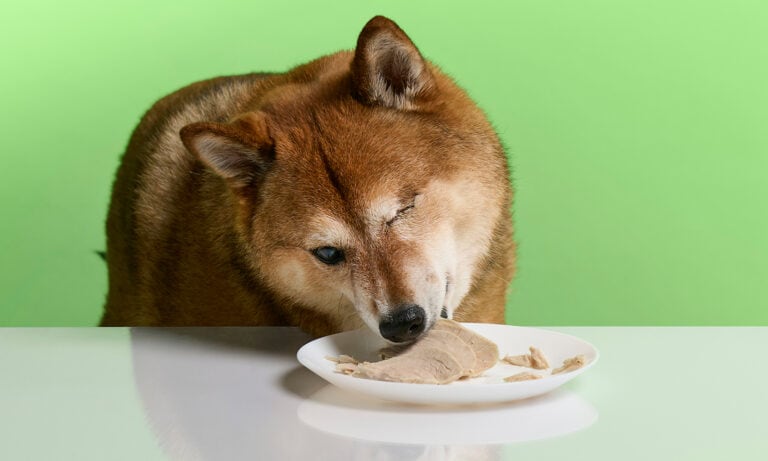There's no denying it: The mouthwatering scent of bacon sizzling in a pan can make even the most disciplined of us drool. As those tantalizing aromas waft through the air, our canine companions are often the first to appear, gazing longingly at the crispy strips. But can dogs eat bacon?
We hate to go “bacon” your dog's heart, but these sizzling strips are off-limits.
While a nibble of bacon won’t harm your dog, it’s not a food you should be giving your pup due to the high fat and salt content. Dogs can, however, eat commercial dog treats with small amounts of bacon or bacon flavoring—we’ll share our favorite options shortly!
We spoke to a vet expert to understand the risks of bacon for dogs and what to do if your dog eats too much.
Click to jump to each section:
Why Shouldn’t I Give My Dog Bacon?
While it's natural to want to spoil your pet, it's crucial to prioritize their health and well-being over momentary pleasures.
Here are the top reasons why you shouldn’t give your dog bacon:
High Fat Content
Bacon is incredibly fatty. While fats are an essential part of your dog’s diet, the sheer amount in bacon can overwhelm a dog's digestive system. When dogs frequently eat fatty foods, their chances of developing pancreatitis increase.
This condition, characterized by the inflammation of the pancreas, not only results in pain and discomfort, but it can also bring about life-threatening complications if left untreated.
Bacon’s high fat content can also contribute to weight gain and obesity. Overweight dogs face numerous health challenges, including joint problems, heart diseases and decreased life expectancy.
High Salt Content
Bacon’s salt content is much higher than what dogs require. A sudden surge in salt intake can throw off a dog's electrolyte balance.
Symptoms such as increased thirst and urination are only the tip of the iceberg. In more severe instances, dogs can face sodium ion poisoning, a potentially life-threatening condition that can manifest with symptoms such as tremors, high fever and seizures.
Harmful Preservatives and Additives
Today's commercial bacon is more than just meat; it's often laced with a cocktail of preservatives and additives to prolong shelf life and enhance flavor. Among these, sodium nitrites stand out as particularly concerning. Ingested in large quantities, these compounds can be toxic to dogs and lead to a range of health issues, from an upset stomach to a blood disorder called methemoglobin.
Digestive Upsets
Dogs’ digestive systems are designed differently than ours: Foods that we might handle with ease can wreak havoc on a canine’s gut. The richness and fatty composition of bacon can lead to immediate gastrointestinal disturbances, causing diarrhea, vomiting and general discomfort.
My Dog Ate Too Much Bacon. What Do I Do?
Bacon is not inherently toxic to dogs, so if your dog stole a small piece of bacon or even a whole piece, there’s likely no need to worry.
However, if your dog ingested multiple slices of bacon, there could be cause for concern.
In this case, it’s important to keep an eye on your pup, watching for the following symptoms:
- Vomiting
- Diarrhea
- Lethargy
- Decreased appetite
If these symptoms or any others occur, contact your veterinarian immediately for guidance.
Feeding your dog lightly for a day following “the bacon incident” may also be wise to help prevent further gastrointestinal distress.
Bacon Treats to Give Your Dog
While feeding your dog strips of bacon should be avoided, there's no need to deprive them of that savory taste they crave.
Numerous dog-friendly bacon treats are available that provide that bacon-y goodness without the associated risks.
Here are a few tail-wagging options to try:
FAQs About Bacon and Dogs
Q:
Can dogs have raw bacon?
Q:
Can dogs have bacon fat?
Q:
Can dogs have turkey bacon?
Q:
Can dogs have pork?
Q:
Can dogs have ham?
Other foods dogs can't eat:
Share:












